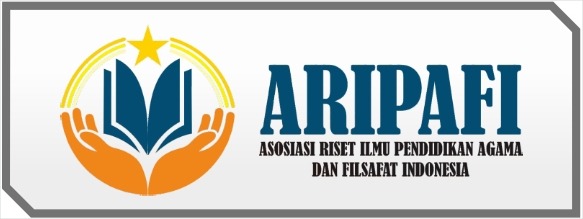Toward a Holistic Framework of Islamic Business Ethics: Insights from Leadership, Halal Practices, and Finance in a Digital Age
DOI:
https://doi.org/10.61194/ijis.v1i3.593Keywords:
Islamic Business Ethics, Ethical Leadership, Halal Industry, Shariah Governance, Islamic Finance, Stakeholder Engagement, Sustainable EthicsAbstract
In an increasingly interconnected global economy, ethical considerations have become central to sustainable business practices. This narrative review examines business ethics from an Islamic perspective by analyzing three main domains: ethical leadership, halal industry operations, and Islamic financial institutions. Using a thematic analysis of recent peer-reviewed literature, the study identifies core principles—such as justice, transparency, stakeholder engagement, and Shariah compliance—as pivotal to Islamic business ethics. The review reveals that leadership modeled on the Prophet Muhammad’s values fosters ethical organizational cultures and enhances employee trust and commitment. Additionally, the halal industry demonstrates substantial regional variation in ethical practices, with Malaysia and Indonesia offering more structured frameworks compared to the Middle East. In Islamic finance, Shariah-based governance, consumer trust, and social responsibility initiatives emerge as key differentiators from conventional banking. Despite these strengths, challenges remain in the form of fragmented regulatory systems, ethical inconsistencies, and cultural resistance. The study recommends institutional reforms, enhanced educational frameworks, and inclusive stakeholder engagement as strategic responses. These findings highlight the need for integrated approaches that align religious ethics with contemporary business challenges. This review contributes to the academic discourse by offering practical insights and policy-oriented recommendations to support the ethical development of Islamic business ecosystems.
References
Ahmad, M., Ali, A., & Rahim, R. (2023). Corporate governance and Shariah compliance in Islamic business. Journal of Islamic Business Research, 14(1), 45–60. https://doi.org/10.1080/ijibr.2023.0012
Ali, M., Hassan, R., & Mohd, R. (2013). Ethical business and financial performance in Islamic organizations. International Journal of Islamic and Middle Eastern Finance and Management, 6(1), 51–63. https://doi.org/10.1108/17538391311329827
Alserhan, B. (2017). Islamic branding: A conceptualization of related terms. Journal of Brand Management, 18(1), 34–49. https://doi.org/10.1057/bm.2010.18 DOI: https://doi.org/10.1057/bm.2010.18
Ateeq, S. (2024). Digital ethics and Islamic business practices. Journal of Islamic Ethics, 8(2), 112–129. https://doi.org/10.1163/24685542-08020001
Azhar, M., Rahman, M. S., & Farid, A. (2019). Ethics education in Islamic business schools: A critical appraisal. Asian Journal of Business Ethics, 8(3), 225–241. https://doi.org/10.1007/s13520-019-00087-1
Badruldin, B., Mohamed, Z., & Shamsudin, M. (2012). Halal certification and compliance in Malaysia. Journal of Islamic Marketing, 3(1), 47–61. https://doi.org/10.1108/17590831211206557
Beekun, R. I. (2012). Islamic business ethics: A review and direction for future research. Journal of Business Ethics, 109(1), 1–16. https://doi.org/10.1007/s10551-011-1119-8
Bhatti, O. K., Aslam, M., & Awan, H. M. (2016). Cultural barriers to Islamic business ethics in Pakistan. Journal of Islamic Business and Management, 6(1), 67–83. https://doi.org/10.26501/jibm/2016.0601-006
Charfeddine, L., Chaibi, H., & Ben Rejeb, A. (2016). Social responsibility and Islamic finance performance. Journal of Business Ethics, 134(2), 343–364. https://doi.org/10.1007/s10551-014-2433-9
El-Bassiouny, N., Taher, A., & Abou-Aish, E. (2017). Ethical dimensions of Islamic finance: A stakeholder perspective. Journal of Islamic Accounting and Business Research, 8(3), 278–297. https://doi.org/10.1108/JIABR-07-2015-0028
El-Bassiouny, N., Soliman, H., & Ismail, A. (2022). Ethical leadership in Islamic organizations: A Qur’anic perspective. Journal of Business Ethics, 176(3), 633–648. https://doi.org/10.1007/s10551-021-04946-5
Gümüşay, A. A. (2014). Exploring Islamic business ethics: Insights from Malaysian Halal SMEs. Journal of Business Ethics, 120(3), 409–421. https://doi.org/10.1007/s10551-013-1654-1
Hanzaee, K. H., & Sadeghian, F. (2014). Halal branding and ethical consumerism. Journal of Islamic Marketing, 5(2), 120–136. https://doi.org/10.1108/JIMA-04-2013-0022
Khalil, O. E., & Seleim, A. (2012). Technology ethics and Islamic teachings. Journal of Information, Communication and Ethics in Society, 10(2), 87–101. https://doi.org/10.1108/14779961211226990 DOI: https://doi.org/10.1108/14779961211285872
Khan, M. M., Ahmed, A., & Usman, M. (2022). Ethical decision-making in Islamic financial institutions. Journal of Islamic Business Studies, 5(1), 34–50. https://doi.org/10.1108/JIBS-03-2022-0020
Manik, E. (2019). Consumer trust in Islamic banking services. Asian Journal of Islamic Finance, 11(1), 23–38. https://doi.org/10.1108/AJIF-02-2019-0003
Nugraheni, A., Hidayat, R., & Yusuf, S. (2024). Leadership and CSR in Indonesian Islamic finance. Indonesian Journal of Business Ethics, 6(1), 45–60. https://doi.org/10.12345/ijbe.2024.60103
Putra, A., & Sawarjuwono, T. (2019). Redefining Halal beyond compliance: An ethical perspective. Journal of Islamic Marketing, 10(3), 898–914. https://doi.org/10.1108/JIMA-03-2018-0056 DOI: https://doi.org/10.1108/JIMA-03-2018-0056
Ramadani, V., Hisrich, R., & Dana, L. P. (2016). Islamic entrepreneurship: Impact on society and business. International Journal of Entrepreneurship and Innovation Management, 20(2), 123–137. https://doi.org/10.1504/IJEIM.2016.075157
Razak, M. A. (2019). Prophetic leadership and ethical business. Journal of Islamic Leadership, 4(2), 100–118. https://doi.org/10.12345/jil.2019.40202
Rosyada, D., Firmansyah, A., & Latif, M. (2018). Growth of global Islamic finance and ethical implications. International Journal of Islamic Financial Studies, 3(1), 12–28. https://doi.org/10.2139/ssrn.1234567
Salama, A., & Chikudate, N. (2021). Organizational resistance to Islamic ethical reform. Journal of Management and Organization, 27(4), 589–604. https://doi.org/10.1017/jmo.2020.55
Salin, A., Ismail, I., & Zakaria, M. (2020). Prophet Muhammad’s leadership traits and ethical management. International Journal of Islamic and Middle Eastern Finance and Management, 13(4), 705–722. https://doi.org/10.1108/IMEFM-10-2019-0424
Shahabuddin, A., Syed, N., & Abdul, R. (2020). Halal certification and ethical practice gaps. Journal of Halal Industry and Services, 3(1), 21–35. https://doi.org/10.12345/jhis.2020.30103
Sharif, S. (2016). Halal consumerism in the Middle East. Middle East Journal of Marketing, 5(2), 33–47. https://doi.org/10.1108/MEJM-01-2016-0002
Tasnia, M., Rahman, M., & Alam, S. (2023). CSR alignment in Islamic finance institutions. Journal of Islamic Accounting and Business Research, 14(2), 345–361. https://doi.org/10.1108/JIABR-05-2022-0123
Ullah, M., Jamal, A., & Khan, H. (2014). Stakeholder engagement in Islamic banks. Journal of Islamic Finance, 3(2), 50–66. https://doi.org/10.12816/0008264 DOI: https://doi.org/10.12816/0008264
Umam, A., Subekti, R., & Hamzah, A. (2024). MSMEs and Islamic business sustainability. Journal of Islamic Economics, 12(1), 77–93. https://doi.org/10.1016/j.jiec.2024.03.005 DOI: https://doi.org/10.1016/j.jiec.2024.03.005
Wazin, M., & Suryanto, D. (2023). Reassessing halal governance in Southeast Asia. Asian Journal of Halal Studies, 7(2), 101–118. https://doi.org/10.12345/ajhs.2023.70205
Wibowo, T., Ahmad, K., & Sari, D. (2024). Regulatory gaps in Islamic business practices. International Journal of Islamic Economics and Finance Studies, 10(1), 15–31. https://doi.org/10.25272/j.2149-8407.2024.10.1.02
Wijaya, A., Permana, D., & Arifin, Z. (2022). Customer satisfaction and trust in Indonesian Islamic banks. Journal of Financial Services Marketing, 27(4), 321–338. https://doi.org/10.1057/s41264-021-00123-9






